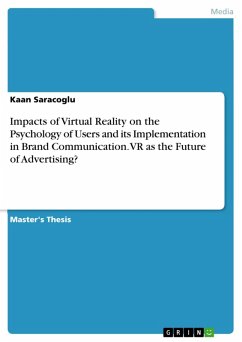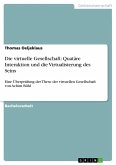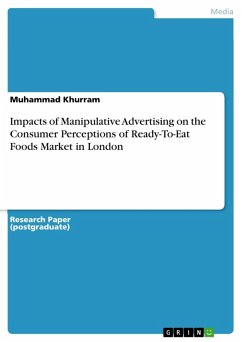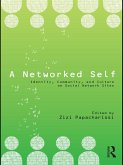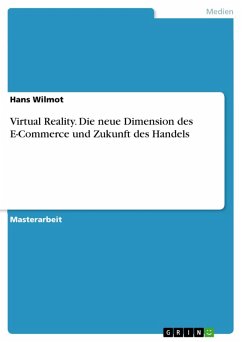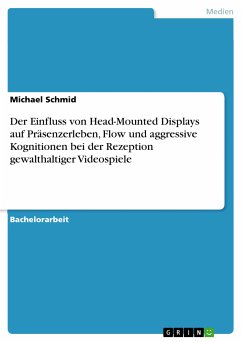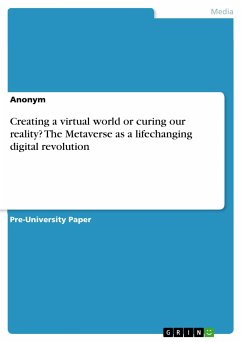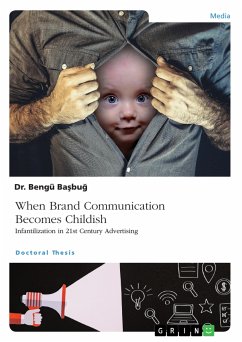Master's Thesis from the year 2021 in the subject Communications - Public Relations, Advertising, Marketing, Social Media, grade: 1,0, University of Applied Sciences Darmstadt (Fachbereich Media), language: English, abstract: This study acts as an intersection set of four different disciplines: psychology, virtual reality, communications, marketing, to develop innovative proposals for the prospective utilization of virtual reality medium in marketing communications. The thesis initially aims to detect the psychological effects of VR on three crucial phenomena concerning the qualities of a satisfactory immersive experience in VR: emotions, sense of presence, and perception, with the help of thematic analysis, by compiling various scientific studies within its scope. Further, it aspires to benefit from psychological elements detected to come up with more efficient VR experiences in favor of brand communication endeavors. Virtual Reality, both as a phenomenon and technology, has covered an immense distance, particularly over the recent two decades. In the current climate, the adventure that started with launching new-generation VR devices sparked by the Oculus brand exceeded the boundaries of being merely a gaming device. It has already become adopted by different disciplines for a variety of purposes. Moreover, since VR technology comes forth with unique features that cannot be matched with either of the technological devices existing, it is currently widely used in a range of sectors, including communications and marketing. However, some recent studies have revealed that Virtual Reality technology, thanks to its overly immersive nature, can have some psychological effects on its users. Apart from the discussions regarding the pearls and pitfalls of such effects, these impacts can also be used to create better virtual experiences in VR medium if they are analyzed well. Furthermore, in case that Virtual Reality will be used as the next communication medium, the experiences equipped with suchlike effects might also serve a variety of advertising efforts in near future.
Dieser Download kann aus rechtlichen Gründen nur mit Rechnungsadresse in A, B, BG, CY, CZ, D, DK, EW, E, FIN, F, GR, HR, H, IRL, I, LT, L, LR, M, NL, PL, P, R, S, SLO, SK ausgeliefert werden.

